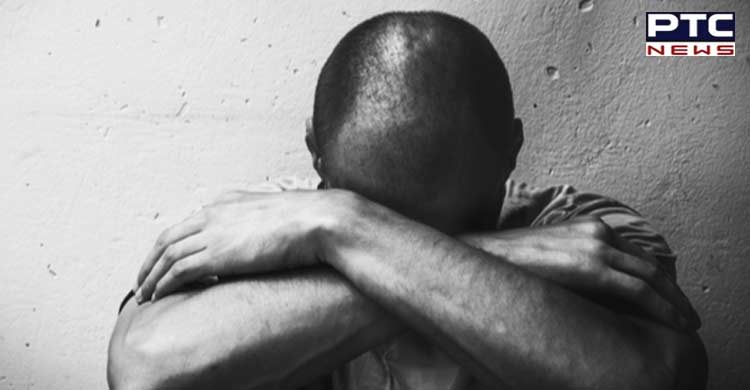Heart attack survivors may be at higher risk of mental weakness, says study
Washington (US), May 9: About one in three survivors of a heart attack experienced a significant mental decline in the days and months after the heart attack, claims a new study whose findings were presented at the American College of Cardiology's 71st Annual Scientific Session.
 The study suggests that increased attention to monitoring cognitive functioning after a heart attack is needed. According to researchers, they "found a very high prevalence of previously undiagnosed cognitive impairment among patients hospitalized due to myocardial infarction." Dominika Kasprzak, MD, a cardiologist at J. Strus Hospital in Poznan, Poland, and the study's lead author said, "This impairment can be both temporary and permanent, and some patients develop impairment after a delay of several months."
The research assessed the mental functioning of 220 patients hospitalised for a heart attack in Poznan, Poland. Patients underwent two cognitive assessments just a few days after their heart attack and repeated the tests six months later.
The study suggests that increased attention to monitoring cognitive functioning after a heart attack is needed. According to researchers, they "found a very high prevalence of previously undiagnosed cognitive impairment among patients hospitalized due to myocardial infarction." Dominika Kasprzak, MD, a cardiologist at J. Strus Hospital in Poznan, Poland, and the study's lead author said, "This impairment can be both temporary and permanent, and some patients develop impairment after a delay of several months."
The research assessed the mental functioning of 220 patients hospitalised for a heart attack in Poznan, Poland. Patients underwent two cognitive assessments just a few days after their heart attack and repeated the tests six months later.
 The Mini-Mental State Examination and the Clock Drawing Test, both of which assess a person's thinking, memory, and ability to perform basic tasks and are commonly used to detect signs of dementia, were used.
Also Read | Sri Lanka: LPG shortage deepens; no cooking gas for domestic users
Overall, the tests revealed that approximately half of the patients had normal cognitive functioning at both time points, while the other half had some cognitive impairment. About 35-40% of patients had cognitive impairment in the days following their heart attack, while 27-33% had impairment six months later.
The Mini-Mental State Examination and the Clock Drawing Test, both of which assess a person's thinking, memory, and ability to perform basic tasks and are commonly used to detect signs of dementia, were used.
Also Read | Sri Lanka: LPG shortage deepens; no cooking gas for domestic users
Overall, the tests revealed that approximately half of the patients had normal cognitive functioning at both time points, while the other half had some cognitive impairment. About 35-40% of patients had cognitive impairment in the days following their heart attack, while 27-33% had impairment six months later.
 In about half of the patients who had some cognitive impairment shortly after their heart attack, the impairment was temporary, while the other half had permanent impairment.
"Cognitive deficits, such as memory loss or not being able to recognize a loved one, can be even more important for our patients than their cardiovascular disease," Kasprzak added.
Before their heart attack, none of the study participants had a history of dementia or cognitive disorders. While the researchers did not attempt to identify the causes of the observed mental declines, Kasprzak suggested that different drivers may be at work in the case of temporary versus permanent effects.
In about half of the patients who had some cognitive impairment shortly after their heart attack, the impairment was temporary, while the other half had permanent impairment.
"Cognitive deficits, such as memory loss or not being able to recognize a loved one, can be even more important for our patients than their cardiovascular disease," Kasprzak added.
Before their heart attack, none of the study participants had a history of dementia or cognitive disorders. While the researchers did not attempt to identify the causes of the observed mental declines, Kasprzak suggested that different drivers may be at work in the case of temporary versus permanent effects.
 Psychological stress and sleep disturbances, for example, may contribute to temporary deficits around the time of a heart attack, whereas permanent effects may indicate neurodegeneration or brain damage. Sleep disturbances, depression, and anxiety can play a role in patients who experience delayed declines months after a heart attack.
Also Read | Elon Musk's 'If I die under mysterious circumstances...' tweet creates buzz; know details
-PTC News
Psychological stress and sleep disturbances, for example, may contribute to temporary deficits around the time of a heart attack, whereas permanent effects may indicate neurodegeneration or brain damage. Sleep disturbances, depression, and anxiety can play a role in patients who experience delayed declines months after a heart attack.
Also Read | Elon Musk's 'If I die under mysterious circumstances...' tweet creates buzz; know details
-PTC News